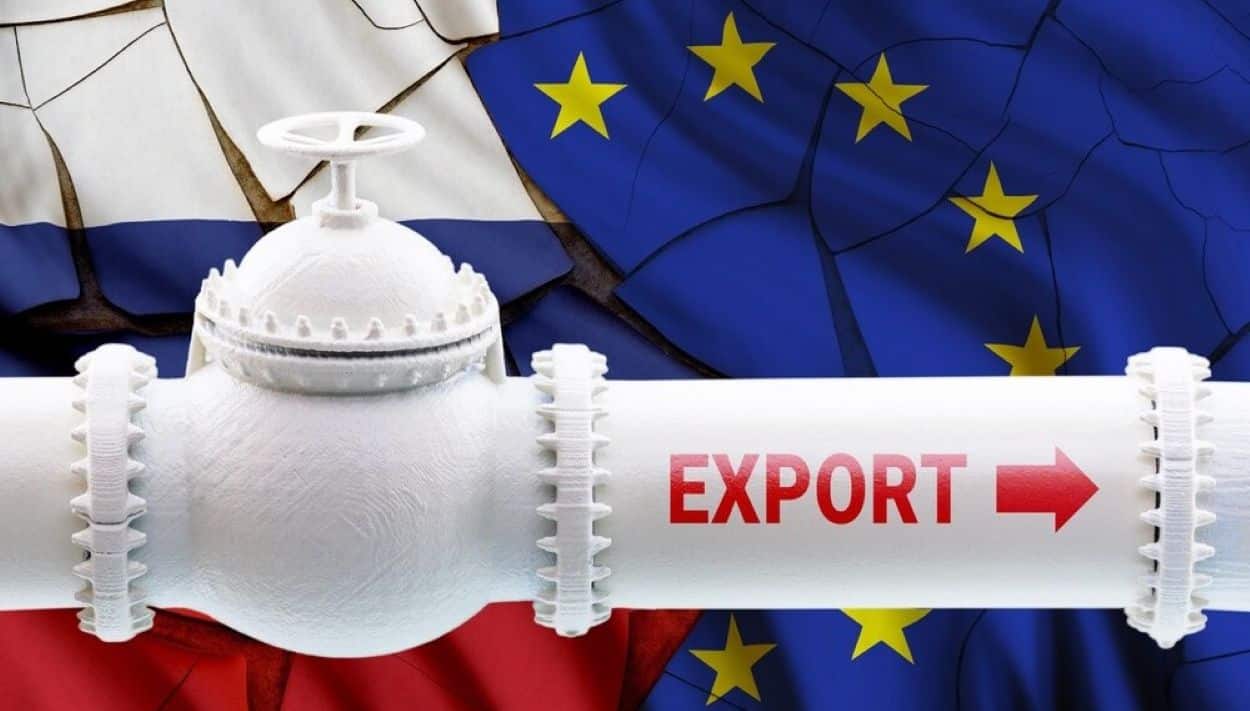Russian natural gas exports to Europe through Soviet-era pipelines running through Ukraine ceased in the early hours of New Year’s Day after a transit agreement expired.
The closure marks a significant turn in a decade of strained relations that intensified after Russia’s annexation of Crimea in 2014, leading Ukraine to cease purchasing Russian gas the subsequent year.
“This is a historic event. Russia is losing its markets and will suffer financial losses. Europe has already decided to abandon Russian gas,” declared Ukraine’s Energy Minister, German Galushchenko.
Gas transit was expected to stop in February 2022 because of the conflict, as Ukraine decided not to extend the agreement amid war conditions. Industry sources noted that Gazprom, Russia’s state-controlled energy company, had already factored in the loss of the Ukrainian transit route, which previously handled about half of Russia’s pipeline gas exports to Europe.
Russia continues to export gas via the TurkStream pipeline across the Black Sea, which serves Turkey and central European countries such as Hungary and Serbia.
Since 2022, the European Union has intensified its efforts to diversify its energy sources in response to the conflict and the unreliability of Russian energy supplies. Countries previously reliant on the Ukrainian transit route, like Slovakia and Austria, have secured alternative supplies.
Moldova, heavily impacted by the stoppage, announced plans to cut its gas consumption by one-third.
The five-year gas transit agreement between Russia and Ukraine expired on January 1, 2025. “Due to Ukraine’s repeated refusal to renew these agreements, Gazprom lacks the technical and legal means to continue gas transit through Ukraine as of January 1, 2025,” stated Gazprom via Telegram.
According to Ukraine’s energy ministry on the same day, at 08:00 Moscow time, Gazprom ceased all gas supplies for transit through Ukraine, citing the move as necessary for national security,
The discontinuation of the transit is a double economic blow: It will cost Ukraine approximately $800 million annually in transit fees and Gazprom nearly $5 billion in gas sales.
Other conventional Russian gas routes to Europe have also experienced disruptions. The Yamal-Europe pipeline, which traverses Belarus, and the Nord Stream pipeline, running across the Baltic Sea to Germany, both ceased operations; the latter suffered damage from explosions in 2022.
In 2018, these routes delivered a record 201 billion cubic meters of gas to Europe. This figure starkly contrasts the drastically reduced volume of 15 billion cubic meters transported via Ukraine in 2023, a significant drop from 65 billion cubic meters in 2020.






